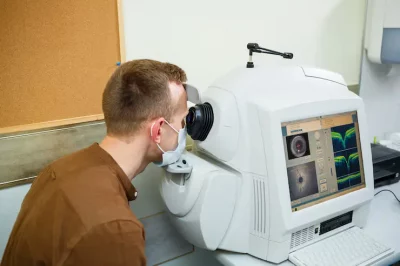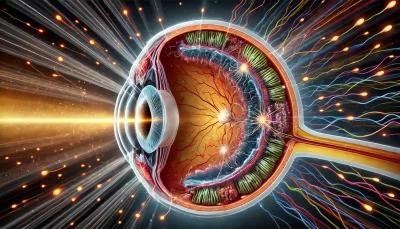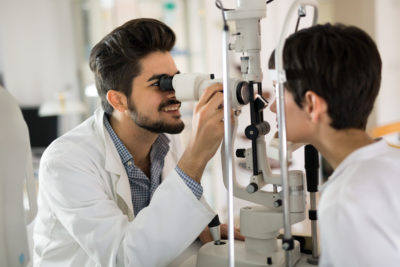“We will need to get your babies’ eyes checked by a Paediatric Ophthalmologist.” Smita’s heart sank as soon as she was told this by her doctor. The last week had been one heck of a roller coaster ride. It all started with her Gynaecologist telling her that they would need to perform an emergency operation for her to have her baby prematurely. She had not even held her baby in her arms when it was whisked away to the NICU. Sometimes, the doctor gave her hopes when he said their baby was improving. At other times, she simply dreaded the doctor’s visits fearing they would tell her that her baby was no more.
And now when her doctor told her about the eye check, a thousand thoughts ran amok in her mind, ‘Why an eye check?’ ‘Oh God, please don’t let my baby be blind!’ ‘Is it a routine check or have they detected something?’ But all she could mutter was, “Why Doctor?” It seemed as if the doctor had read her mind, “Don’t worry Mrs. Smita. We are just screening your baby for something called ROP, an eye condition found in premature babies. We…” Smita didn’t know whether it was the numbness of fear or just the exhaustion of the last fortnight. A hundred new questions drowned out everything that her doctor was trying to explain. All she could do was stare blankly at her doctor. He smiled gently at her, “Why don’t you write in to me? I’ll answer all your queries by mail.”
Dear Mrs. Smita,
Please find answers to all your queries inline. Also attached is a brochure explaining the condition.
If there is anything else we can help you with, do feel free to write back.
Wishing your baby a speedy recovery.
What is ROP?
Retinopathy of Prematurity (ROP) is a potentially blinding disease affecting the back part of the eye (retina) that can occur in premature babies or low birth weight babies.
Why does ROP occur?
The retinal vessels start developing in utero at 16 weeks. They fan from the optic disc towards the periphery reaching the extreme periphery at term (40weeks). In premature babies born before 34 weeks or low birth weight babies (
Does it affect vision?
Yes, it may affect vision variably depending on the degree of scarring and retinal detachment. It can also lead to permanent loss of vision.
Do all premature babies develop ROP?
No, not all babies develop ROP. Generally, babies
What is the treatment for ROP?
Treatment depends on the stage of the disease. In the early stages close monitoring to look for maturation of the vessels suffices. However, in slightly advanced stages laser ablation of the non-vascular retina is required to stop growth of abnormal blood vessels. In very advanced stages when the retina gets detached complex surgery is required to salvage any useful vision.
Also the child needs to undergo regular check-ups to look out for refractive errors, squint, amblyopia (lazy eye) which is commoner in these babies.
What are the symptoms of ROP?
There are no symptoms for ROP. All babies at risk need to be screened by an ophthalmologist `before day 30’ of life. The screening procedure involves instillation of eye drops to dilate the pupil. The doctor will then examine the retina using a special light and a lens.
If my baby does not have ROP, would I still have to come for check-ups?
Yes, if your child is premature but does not have ROP, it is still recommended that your child should have regular ophthalmic evaluations. This is because the incidence of refractive errors, squint, lazy eye is more in premature babies as compared to term babies.
Smita smiled as she looked at the mail. It had been six months since she had received that mail. Her baby girl had received a clean chit from the eye doctor, gained weight and had been sent home without any further complications. She thanked her stars that those scary days of worrying endlessly and watching helplessly were finally over. As she forwarded the mail to a friend who had also delivered prematurely, she prayed silently that the tyrant ROP did not extend his reign of paranoia over her.









